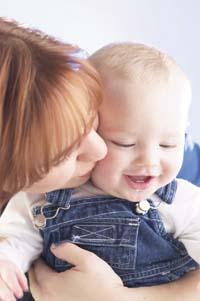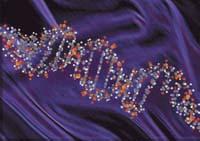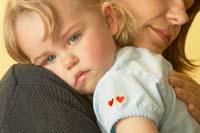Caresses act on genes

About fifty years ago American pediatrician and psychoanalyst John Bowlby proposed that physical contact was as necessary as food for the newborn. For years he studied children and their surroundings and studied the childhood of those suffering from mental illness. Hence I deduced that it was essential to caress, embrace, so that the child would develop properly.
Five decades later, researchers continue to study the biological relationship between the caresses and development of their mother. And, as happens in many studies, they have received some scare. For example, in Canada they have seen that the influence of caresses is not only psychological, but also genetic.
The Canadian team investigates the stress and anxiety of the newborn. To test the existing theories on the origin of these problems, they analyze rats. Thus, in these animals it has been observed that the behavior of rats that have received little care and affection is much more violent in situations of stress than that of others.
Biological mechanism of biological mechanism

An example: the researchers have two female rats with their offspring of one week, each in a cage. One of the mothers often caresses their offspring. For turns, he caresses one by one and the puppies let his mother become his. The mother takes ten minutes to pamper them all. The mother of the other box has finished the ritual in three minutes, despite having as many children as the rest.
Suddenly, one of the researchers has applauded a strong applause. The puppies of the first box are scared, but soon they loosen and return to their head. The second box takes quite a few minutes to calm down.
However, this is only a part of the experiment. Over time and under various circumstances, researchers have measured concentrations of hormones related to stress in the blood of rats (ACTH hormones and gukokorticoids). The conclusion is that there is a big difference in hormonal concentration depending on the caresses that are received when they are young.
Influence on genes

The biological part of this difference is now being studied. Biopsies have shown that her mother's caresses influence the function of genes present in the brain. It seems that the mother's caresses activate the genes of neurons inside the hippocampus, which is related to the reaction in the state of stress.
These genes activated by caresses are responsible for producing the glucocorticoid receptors. When glucocorticoids bind to receptors they lose effect. This avoids a disproportionate response to the stress situation. In fact, at higher concentrations of glucocorticoids in blood, higher response. Therefore, caresses are essential to develop an adequate anti-stress mechanism.
All this has been shown in rats, but it is very possible that in humans there is a relationship of this type between caresses and the anti-stress mechanism. In addition, caresses may also affect other biological mechanisms. Sure the impact will be positive!
Published in 7K.
Buletina
Bidali zure helbide elektronikoa eta jaso asteroko buletina zure sarrera-ontzian








